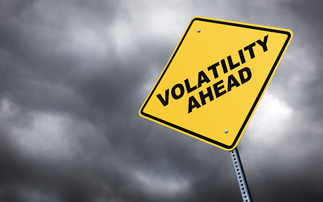Master trusts have enjoyed positive returns across the three investment journey phases but there are some “early signs of concern” emerging around risk profiles, a Hymans Robertson master trust report reveals.
The consultancy's third annual master trust report - published today (17 December) - analysed performance for 12-month and three-year returns to 30 June 2019. It reported a positive year for the growth, consolidation and pre-retirement phases, and noted many providers have not materially changed their investment risk profile from previous years.
However, Hymans Robertson also said some providers are potentially limiting returns by being "too cautious" in the early stages of the defined contribution (DC) journey when volatility should be accepted.
The report said volatility to should be accepted early on, for example at 30 years to retirement and even much later on, and that this position should be maintained.
Average performance in the growth phase - which covers 30 years to five years to retirement across 17 leading master trusts - rested at 6.5% over a year, and 10.6% per annum over three years. The report noted that at this stage, funds are relatively small, and any volatility of performance is typically short term in nature and has a negligible effect on long term outcomes.
In the consolidation phase - which covers five years from retirement - the average return was 7.7% per annum over three years, with an average volatility of 6.1% over the same period.
According to Hymans Robertson, at this phase "volatility becomes a key consideration as members begin to prepare for retirement, so it is not just strong returns that count".
In the pre-retirement phase which covers one year to retirement, the consultancy reported that over three years, the average return was 5.9% per annum, with one provider returning 10.6%. This provider also had the highest level of volatility, recording 7.8% per annum over the same period.
Hymans Robertson head of provider relations Michael Ambery said: "In 2019 money has continued to pour in to the master trusts and it would be fair to say that it has been a remarkable year for the vehicle."
He added: "For any investment strategy to work, it is essential that DC members remain informed and up-to-date around their chosen retirement age, what this choice means in practice and, should they wish to, how to change it.
"By ensuring, to as great an extent as possible, that their membership's retirement ages are accurate then master trusts can start to invest more effectively. Ensuring its default approach is not only delivering an adequate income for their members but that it is optimised both to, and through, retirement."
The analysis follows the conclusion of master trust authorisation for existing schemes in early November, in which a total of 37 schemes were approved. TPR also received an application from a new master trust, HSBC Master Trust, after the regime kicked off, a scheme that received authorisation today.
The market now represents 16 million memberships and holds more than £36bn in assets.









